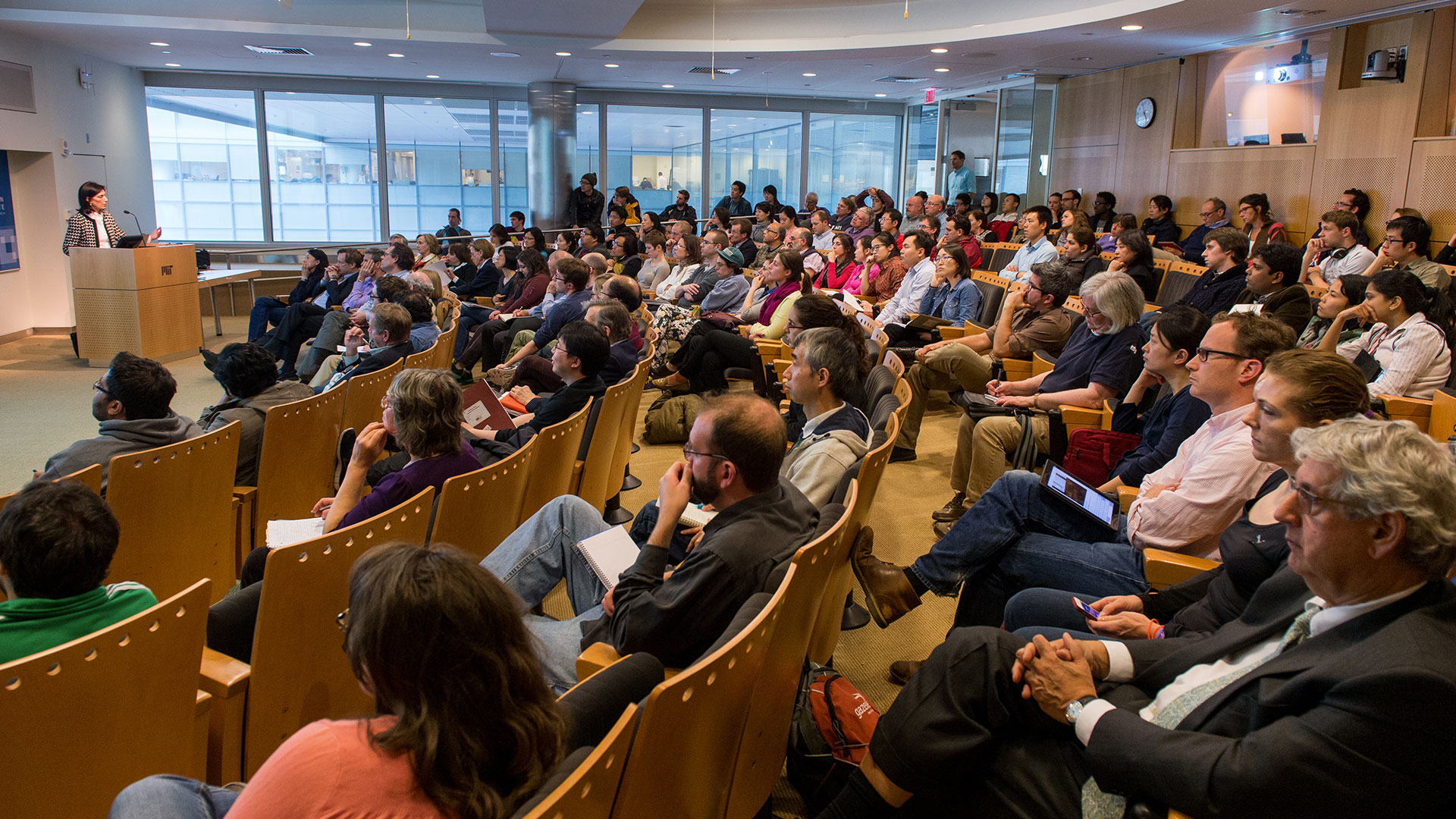About the Scolnick Prize
The Scolnick Prize is awarded annually by the McGovern Institute to recognize outstanding advances in the field of neuroscience. The prize is named in honor of Edward M. Scolnick, who stepped down as president of Merck Research Laboratories in December 2002 after holding Merck’s top research post for 17 years. Scolnick is now at the Broad Institute, where he established the Stanley Center for Psychiatric Research. He also served as a member of the McGovern Institute’s scientific advisory board. The prize, which is endowed through a gift from Merck to the McGovern Institute, consists of a $200,000 award, plus an inscribed gift. The nomination process is outlined below.
Nomination Process
Calls for Nominations
The 2025 nomination deadline is December 15, 2024. Calls for nominations are announced in the fall. Winners are announced early the following year, and the prize ceremony, which includes a public lecture, takes place in the spring. A dinner for the recipient and invited guests follows the prize lecture.
Nomination Procedures
Candidates for the award must be nominated by individuals affiliated with universities, hospitals, medicals schools, or research institutes, with a background in neuroscience. Self-nomination is not permitted. Each nomination should include:
- A biosketch or CV of the nominee
- A letter of nomination with a summary and analysis of the major contributions of the nominee to the field of neuroscience
- Up to two representative reprints will be accepted
- Email nomination packet to Gayle Lutchen.
Selection Procedures
- Members of the selection committee and faculty affiliated with MIT are not eligible
- Announcement of the award recipient are made in the new year
- Recipient must attend all events to be awarded the prize
Selection Committee
- Robert Desimone, McGovern Institute (chair)
- Joseph Coyle, McLean Hospital and Harvard Medical School
- Catherine Dulac, Harvard University
- Guoping Feng, McGovern Institute
- Ann Graybiel, McGovern Institute
- H. Robert Horvitz, McGovern Institute
- Nancy Kanwisher, McGovern Institute
- Story Landis
- Fan Wang, McGovern Institute
Past Winners
Margaret Livingstone, 2024
Margaret Livingstone (Harvard University) received the 2024 Scolnick Prize for her discovery that experience is necessary and sufficient for the formation of face-specific brain domains.
Yang Dan, 2023
Yang Dan (UC Berkeley) received the 2023 Scolnick Prize for her discovery of mechanisms controlling sleep-wake states.
David Ginty, 2022
David Ginty (HHMI, Harvard Medical School) received the 2022 Scolnick Prize for his fundamental discoveries into the neural mechanisms underlying the sense of touch.
Joshua Sanes, 2020
Joshua Sanes (Harvard University) received the 2020 Scolnick Prize for his numerous contributions to our understanding of synapse development.
Richard Huganir, 2019
Richard Huganir (Johns Hopkins) received the 2019 Scolnick Prize for his elucidation of the molecular mechanisms underlying synaptic plasticity.
David Anderson, 2018
David Anderson (HHMI, Caltech) received the 2018 Scolnick Prize for his work on the biology of neural stem cells and neural circuits that control emotional behaviors.
Catherine Dulac, 2017
Catherine Dulac (HHMI, Harvard University) was honored with the 2017 Scolnick Prize for her work on how pheromones control brain function and behavior.
Cornelia Bargmann, 2016
Cornelia Bargmann (The Rockefeller University) won the 2016 Scolnick Prize for her work on the genetic and neural mechanisms that control behavior in the nematode Caenorhabditis elegans.
Charles Gilbert, 2015
Charles Gilbert (The Rockefeller University) won the 2015 Scolnick Prize for his work on the function and plasticity of the visual cortex.
Huda Zoghbi, 2014
Huda Zoghbi (Baylor College of Medicine) won the 2014 Scolnick Prize for her research on the genetic and neural basis of human neurodegenerative and neuropsychiatric disorders.
Thomas Jessell, 2013
Thomas Jessell (Columbia University) was awarded the 2013 Scolnick Prize for his discoveries regarding the development of the spinal cord.
Roger Nicoll, 2012
Roger Nicoll (University of California, San Francisco) won the 2012 Scolnick Prize for his pioneering work on synaptic plasticity, the basis of learning and memory.
Bruce McEwen, 2011
Bruce McEwen (The Rockefeller University) was awarded the 2011 Scolnick Prize for his contributions to understanding how hormones affect the brain.
Lily and Yuh-Nung Jan, 2010
Lily and Yuh-Nung Jan (University of California, San Francisco) were awarded the 2010 Scolnick Prize for their many contributions to understanding the genetic basis of brain function and development.
Jeremy Nathans, 2009
Jeremy Nathans (Johns Hopkins University) was awarded the 2009 Scolnick Prize for his work on the molecular basis of human color vision.
Michael Davis, 2008
Michael Davis (Emory University) won the 2008 Scolnick Prize for his discoveries regarding the neural basis of fear and anxiety.
David Julius, 2007
David Julius (University of California, San Francisco) won the 2007 Scolnick Prize for identifying the receptors responsible for the perception of pain and temperature.
Michael Greenberg, 2006
Michael Greenberg (Harvard Medical School) won the 2006 Scolnick Prize for discoveries about the signaling mechanisms that underlie synaptic development and brain plasticity.
Judith Rapoport, 2005
Judith Rapoport (National Institute of Mental Health) won the 2005 Scolnick Prize for her work on the neurological basis of developmental disorders of childhood.
Mark Konishi, 2004
Mark Konishi (California Institute of Technology) was awarded the inaugural Scolnick Prize for providing fundamental insights into the brain mechanisms of sound localization.


